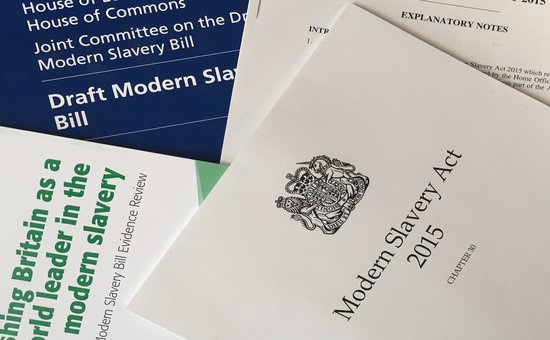Joint civil society response to UK Government’s Modern Slavery Statement
This response highlights the commendable elements of the statement and lays out our recommendations for the Government to build on its approach.

This response highlights the commendable elements of the statement and lays out our recommendations for the Government to build on its approach.

The COVID-19 pandemic has drawn attention to the low pay and poor conditions of workers on precarious contracts around the world. Action is needed to better protect their rights.
The second interim report by the Modern Slavery Act Independent Review makes a series of far-reaching recommendations to remedy the shortcomings of the Transparency in Supply Chains (TISC) clause (section 54), echoing CORE’s submission.

A
CJC, Amnesty International UK, Anti-Slavery International, the Business & Human Rights Resource Centre, Fairtrade Foundation, Freedom United and ShareAction have made a joint submission to the Home Office’s commissioned independent review of the Modern Slavery Act. We recommend that that the Act is strengthened through a) improved monitoring and enforcement mechanisms and b) a revision...

A new report published by CORE and ICAR reveals that that a third of companies that have supplied uniforms for UK public sector workers, including the armed forces and prison officers, have not reported on what they are doing to tackle slavery in their supply chains.
CORE and partner ICAR have submitted a response to the Australian Government regarding its proposals to establish a Modern Slavery Act. We urge the Australian Government to draw on UK modern slavery legislation and to go further than the UK Act in terms of reporting provisions and enforcement.
In the run up to this year’s general election, the three main UK-wide political parties have now unveiled their manifestos.
There are many commonalities across three, with parties professing a desire to confront labour abuses such as modern slavery, and respond to new labour vulnerabilities driven by the “gig economy” and zero hour contracts. However, there are some notable differences on Brexit, corporate governance and the use of procurement to encourage better practice.
We do not accept that either a “hard” Brexit or an exit from the EU without a deal is in the interests of the British people. We will be actively campaigning to safeguard jobs, uphold basic rights and put environmental protection at the heart of any future trade deals.
The Liberal Democrats’ 2017 Manifesto makes similar commitments to those pledged in 2015. These include: reforming laws to extend company reporting to ethical practices, environmental, worker and community protections; tackling tax avoidance and utilising public procurement to promote best business practice. New pledges focus on keeping the UK in the single market, strengthening worker input into company...